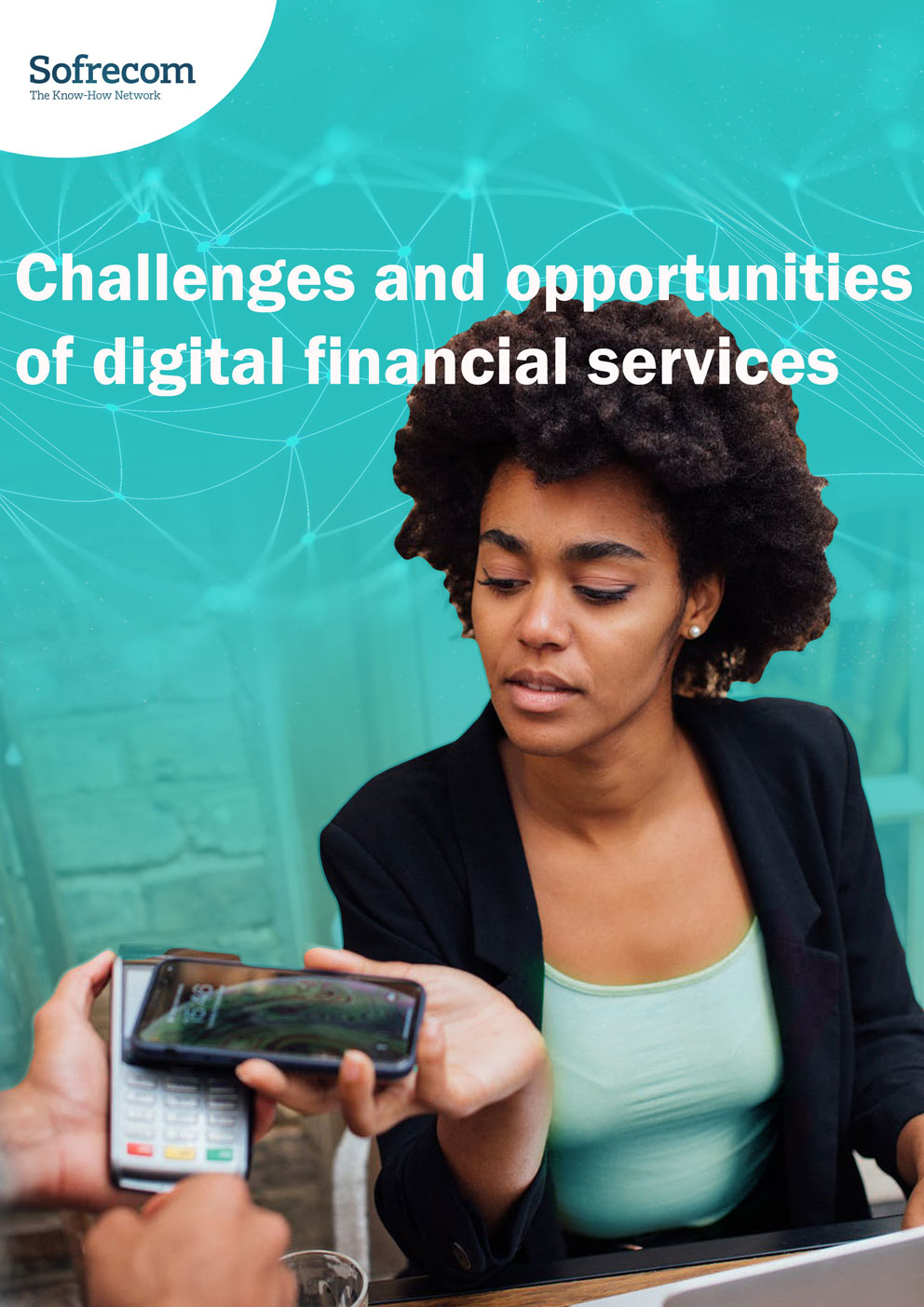
Technological and regulatory changes have also significantly contributed to the emergence of mobile financial services
First at the regulatory level. The famed DSP2 (Payment Services Directive) helped foster competition by instituting new statuses. New players emerged, often referred to since as Fintechs. However, other sectors too (GAFA, Retail, Fintech, etc.) have taken advantage of this regulatory change to broaden their offer to financial services.
The expansion of smartphone usage has also enabled the explosion of Mobile Banking. There too, operators enjoy legitimacy. By providing data and associated content, they can move up the value chain. All the new payment and wallet solutions that make it possible to dematerialise a bank card can be made on a smartphone. Operators have developed their own mobile payment solution either by using the possibilities of NFC technology (Orange Cash) or by offering a customer pathway that incorporates the use of a QR code (Meo Wallet).
A variety of strategies for releasing banking offers
In this area, multiple operators have already adopted different strategies.
Mobile financial services offers can also be built by buying out an existing banking player. Orange took control of Groupama Banque in France, while Japanese operator NTT Docomo bought German bank Bankverein Werther.
Partnerships between telecom players and banks have also facilitated the emergence of financial services offers. One example is that of the operator O2, which created O2 Banking in partnership with the neo-bank, Fidor. Another is Orange Finanze, which markets an offer designed by Polish mobile bank mBank.
More recently, the Spanish operator Movistar launched a consumer credit offer for its customers, which offers loans online up to EUR 3,000 via a simplified and full-mobile customer pathway. The lender is a joint venture with CaixaBank.
These strategies reveal a desire on the part of operators to propose differentiating offers, to hold on to their customers, but also to develop new sources of income and create customer value, where in the case of historic telco offers, ARPU is generally on the decline.
Financial services a necessity, in light of know-your-customer imperatives
Payment has proven a significant source of information on customer behaviour. For business players, gathering and knowing how to make use of payment data is extremely valuable. The GAFAs have made these skills their trademark. Payment data are used to conduct behavioural analyses on customers. The history of transactions and attempted transactions, the average shopping basket by sales channel, purchases made per period, etc. are each valuable knowledge tidbits, as they will help trigger more effective marketing actions. Operators thus have every interest in interconnecting payment data and CRM.
Moreover, when all transactions and related financial flows are managed by a single player, accounting reconciliation is facilitated. It becomes possible to gain a precise overview, in real time, of the cost of commissions, repayments and outstanding invoices.
While a Google-type player will want to enrich the data stemming from customer uses in order to maximise and optimise its advertising revenues, for a mobile manufacturer such as Apple, the aim is first and foremost to offer an additional service to its customers. The customer experience comes first and determines in part the benefits as perceived by customers. The proposed service must be simple and completable in just a few clicks. For certain players such as Amazon, it is planned that payment itself will become transparent. The experiment underway with Amazon Go stores attests to this. In the not-too-distant future, the customer will no longer need to go to the cash register or confirm payment of his purchases.
A value proposition to be calibrated — at what price?
Given these conditions, it appears essential for operators to take position on these services, and even aim for a place upstream of the value chain. In Europe, regulations have opened financial services up to players from all sectors (major retail, fintech, e-commerce, etc.). The shifts and alliances between players have gained speed in recent years.
Offering a day-to-day banking service with a bank account and a card controlled via mobile application has become a standard on the market in Europe. However, this has also meant positions based on low-price or even free offers. The challenge then becomes finding additional sources of income and the right economic model to ensure the service will remain profitable.
This can make sense if it complements a range of existing telecom services, and thus represents a true catalyst for customer loyalty. Financial services can be a means of enhancing those existing offers and continuing to bring legitimacy to the pricing of convergent offers.
Operators have seen their convergence offers develop first around the reconciliation of fixed and mobile, then the addition of content and TV offers. With the advent of mobile financial services, one possible avenue for the future is a Telco-Finance product combining a “Cinquetuple play” service offer.
Current events – July 2017
The recent announcement by Altice Group that it will be launching a new banking offer in Europe confirms the essential anchoring of financial services in the strategies of telco operators and foretells of new competition from players in the sector in this field.





